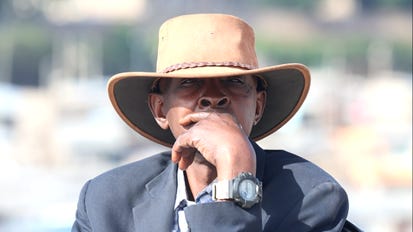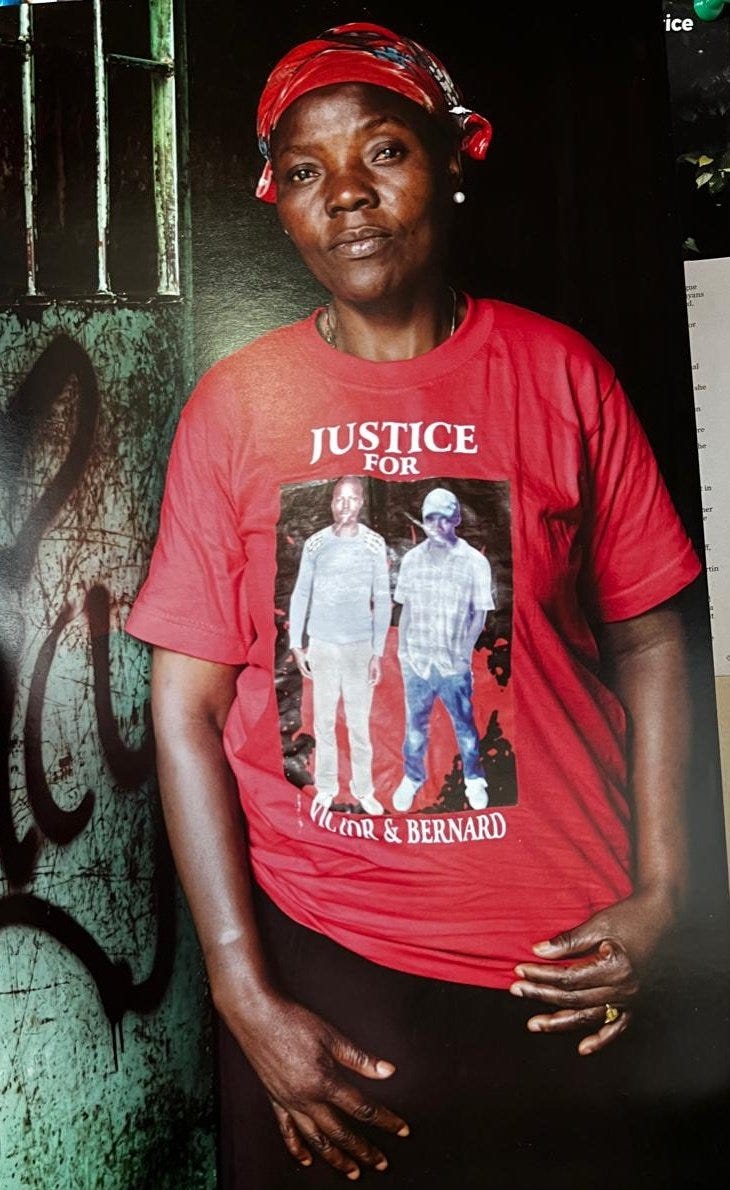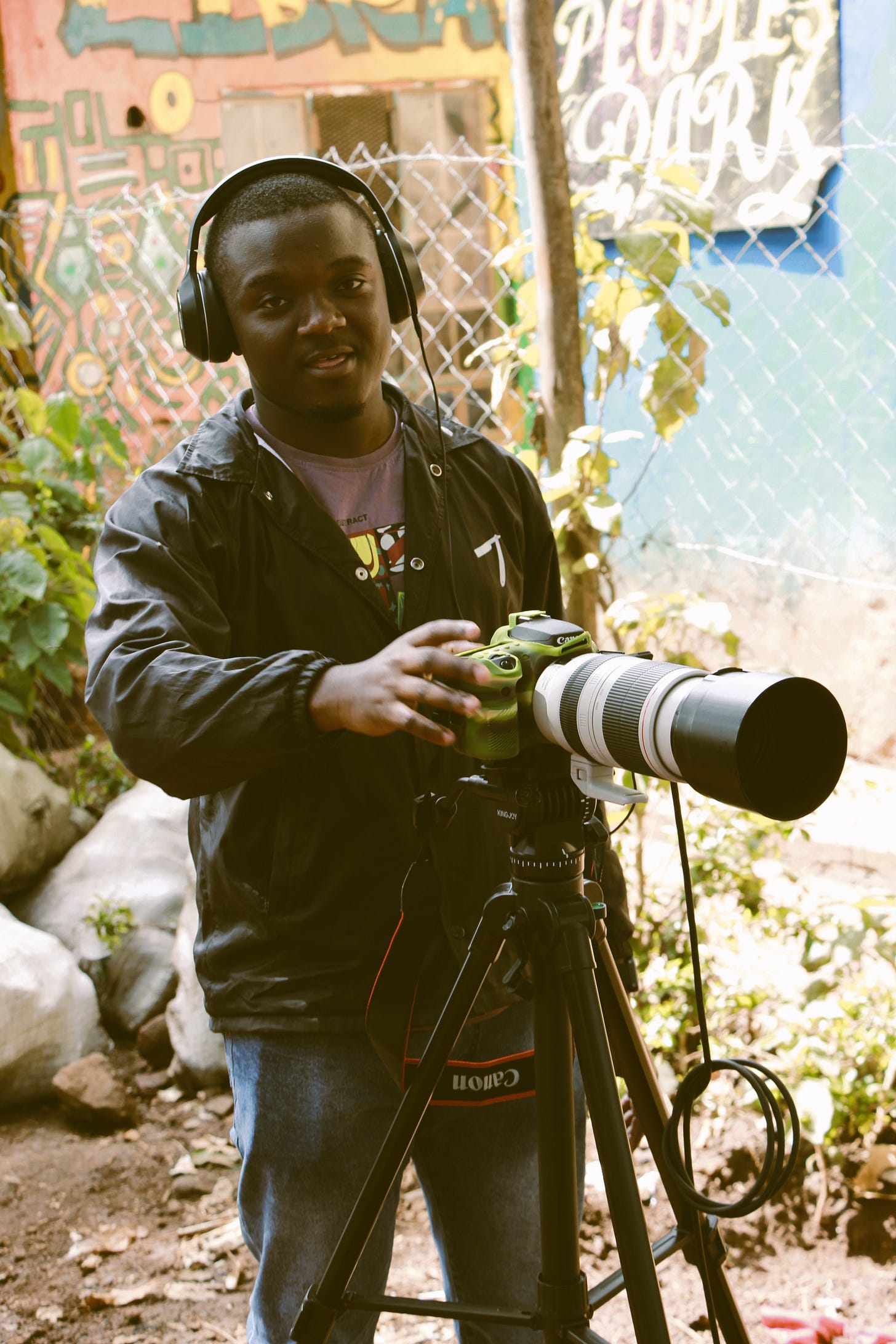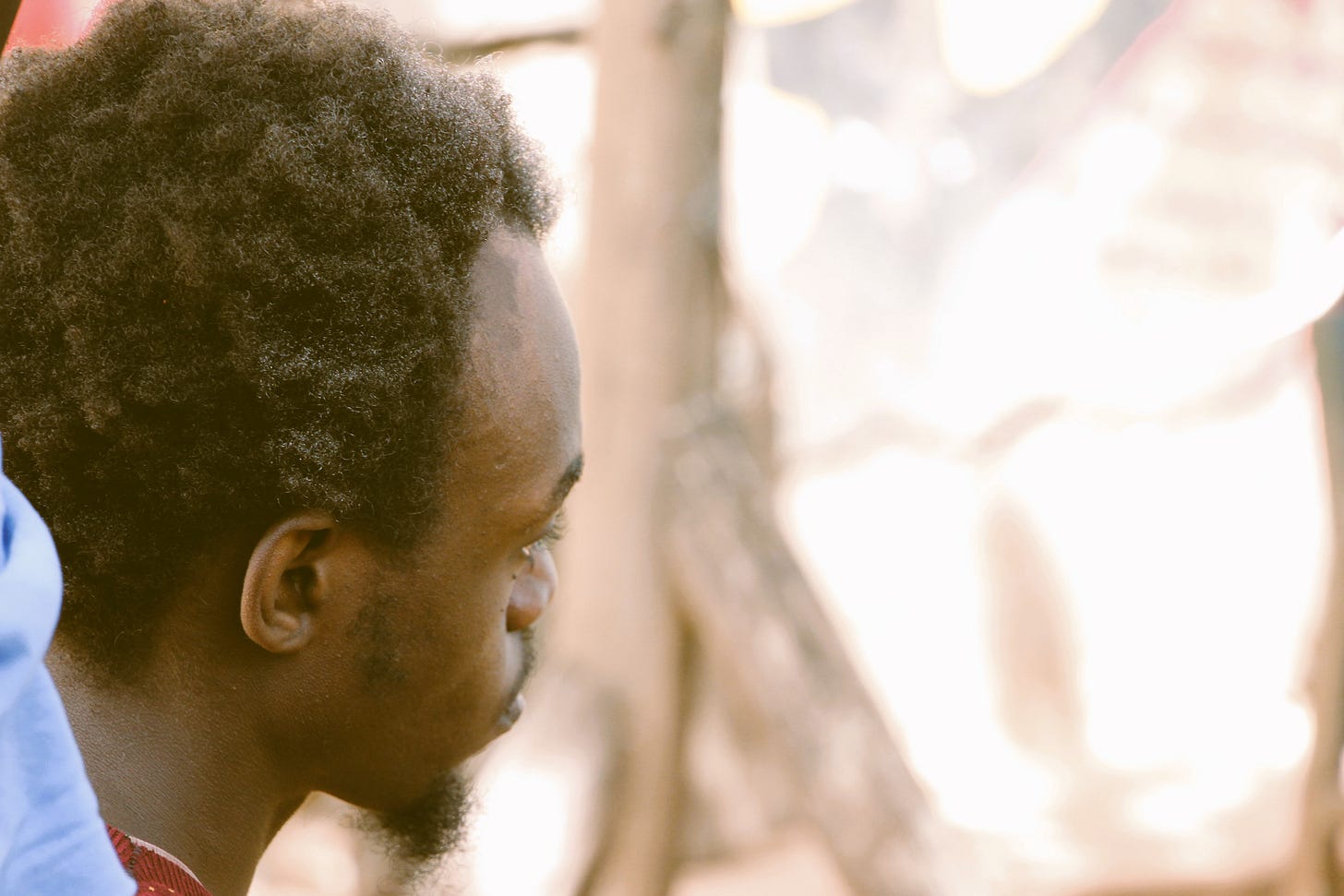The Rise of Supercops and the Limits of Community Policing.
ERASED: Mathare's Fight for Life and Justice
In early 2017, Ahmed Rashid, a Kenyan police officer from Pangani Police Station, shot and killed two unarmed teenagers accused of theft. They had surrendered and were lying on the ground in Eastleigh, a city neighbourhood. Rashid executed them in full view of the public and on camera. It took 5 years for Kenya's policing oversight body to announce that Rashid would face murder charges over the much-publicised incident. This prosecution drew a wide range of reactions. Some saw it as necessary and inevitable; others strongly opposed it. Rashid's impending prosecution plays into the phenomenon of the rise of supercops in the informal settlements.
The support for brutal policing is grounded in the police failures and the under-protection of communities by state police and the criminal justice system. The community’s reaction to police failures often falls under two scenarios. Community vigilantism through mob justice or vigilante groups. However, the fear of possible legal repercussions limits the frequency of community vigilantism. Thus, the rise of supercops who play judge, jury, and executioner holds a major appeal to the often-exasperated communities plagued by widespread crime and violence—but at what cost?
Maxwell Amunga and Felix Odhiambo delve into the Mathare Valley community north of Nairobi to take stock of the players, the pains, and the aftermath of a complex problem, laden with costly and desperate solutions that create even more problems than they solve.
“There will be no extrajudicial killings; there will be no River Yala.”
In an X-Space on July 5, 2024, and during the intermedia interview on June 30, 2024, President Ruto reiterated his campaign promise to end extrajudicial killings, claiming, “There will be no extrajudicial killings; there will be no River Yala.” He also stated in his national address on June 26, 2024, after a 2-week national protest between June 18th and 2nd July, driven by widespread opposition of the Finance Bill 2024 led by Gen-Z, that “I did promise the country that there will be no extrajudicial killings going forward, and ever since I came into office, there has been no one incident of extrajudicial killing.”
However, the 2023 Annual Report by the Missing Voices Coalition, a campaign group focused on extrajudicial killings in Kenya, contradicts these claims. The report documented 118 extrajudicial killings and 10 enforced disappearances in Kenya for 2023, reflecting a 15.8% decrease from 2022. While there was a 9.2% reduction in police killings and a 54.5% drop in disappearances, the report highlighted that most incidents occurred during police anti-crime operations, with Nairobi County accounting for 35.4% of the cases. Men aged 19-35 were the most affected demographic.
Despite the reductions, police impunity remains high, with few officers facing arrest or prosecution. Notably, anti-riot killings increased during protests against the high cost of living.
Verdict
President Ruto's claim that extrajudicial killings have ceased under his administration is MISLEADING. While there has been a decrease in such incidents, the Missing Voices Coalition documented 118 extrajudicial killings and 10 enforced disappearances in 2023. The president's statement significantly downplays the ongoing issue of police violence and impunity in Kenya.
Anatomy of the Killings in Mathare
Extrajudicial killings by the police are common. According to MSJC, between 2013 and 2018, the police killed more than 800 young people in Mathare. Between 2015 and 2016, MSJC documented at least 84 killings by the police in the settlement, down from a high of 126 the previous year, which makes Mathare the site of the highest concentration of killings in Kenya. These numbers were recorded before the 2017 election violence, in which many more died.
Kennedy Chindi believes that the only reason why the numbers were going down between 2015 and 2016 was because, for the very first time, someone was really watching and counting the dead.
The center's first widely recognised publication, "Who is Next?" was the result of this exercise. The centre highlighted particular accounts of extrajudicial executions in Mathare and provided aggregate figures in the report.
The WHO IS NEXT report by the Mathare Social Justice Centre (MSJC) implicates Ahmed Rashid, a former police officer at Pangani Police Station.
The patterns of these killings are clearly laid out in the WHOSE NEXT REPORT, where 3 autopsy reports and 2 death certificates of the victims of extrajudicial killings in Mathare show how they occurred. The average age of victims is approximately 20 and they are mostly men; most are shot at close range or in the back (Christopher Maina). Some cases involve mistaken identity, while in others, evidence is fabricated on the victims, such as Christopher Maina, where the police claim he had a home-made gun capable of firing 4 rounds. In addition, most victims are shot with low-caliber weapons LIKE pistols (as in the cases of Christopher Maina, Anthony Kinuthia Njuguna, and Kevin Kariuki Gitau).


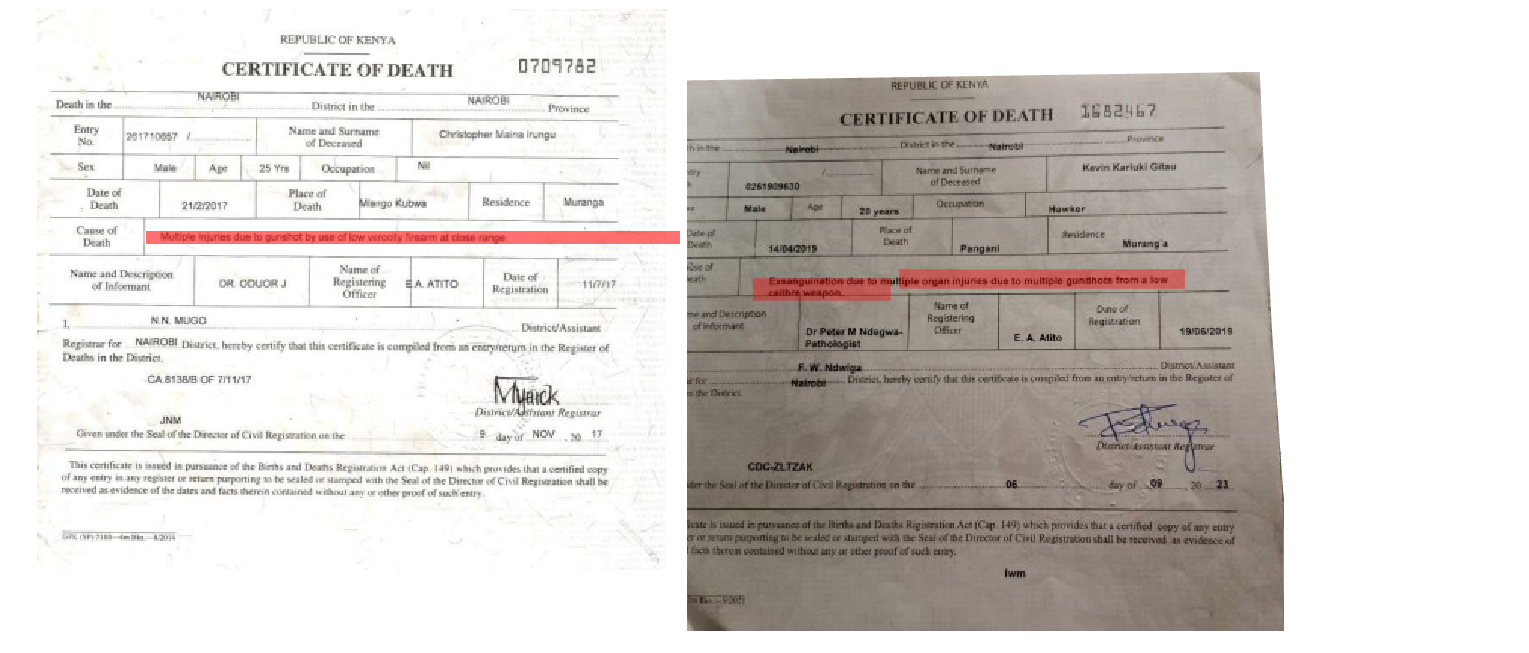
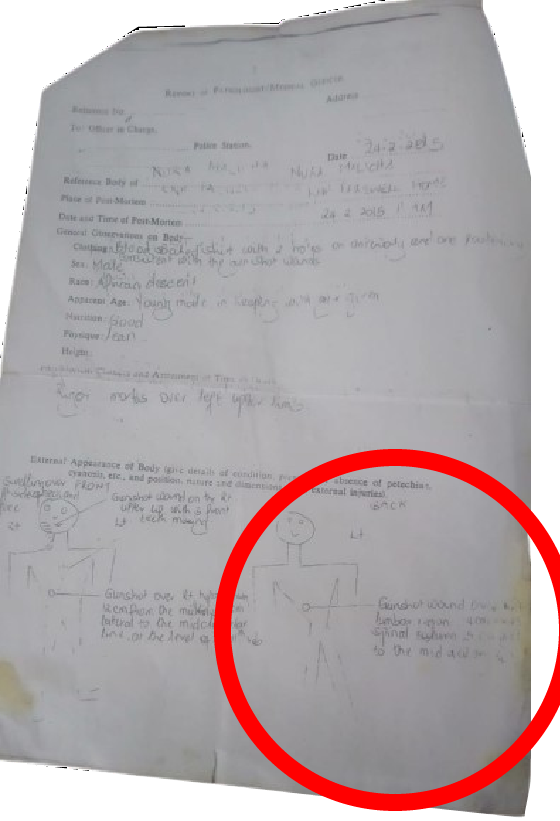
A Victim Of Double Tragedy
In Mathare, justice is often elusive, buried beneath layers of police brutality, state violence, and systemic cover-ups. The first part of this story uncovered the harrowing reality of extrajudicial killings—documented by activists, victims’ families, and the Mathare Social Justice Centre. We traced the trail of impunity, from the feared Pangani 6 squad to the notorious Ahmed Rashid, revealing how young men vanish under the barrel of a gun while the state looks away.
But violence in Mathare is not just about bullets and batons. It is also written into the very fabric of the environment. At the heart of this settlement lies its river—once a source of life, now a toxic wasteland. Its polluted waters mirror the slow violence inflicted upon Mathare’s people: forced evictions, deadly floods, and a system that treats them as disposable. The 2017 post-election violence robbed Mama Victor of her sons; the floods of April 2024 took her, too. Yet, her story, like many others, does not end in tragedy alone. From grief emerges resistance. Mothers like Sarah Wangari have turned pain into purpose, leading the fight for justice, dignity, and survival.
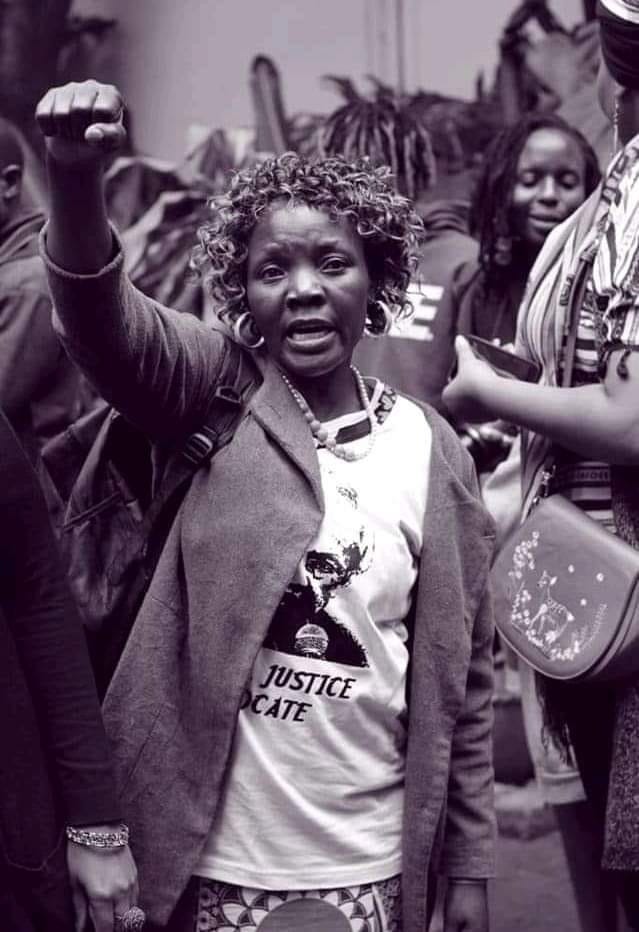
Mothers’ Network for Victims and Survivors of Police Brutality.
Most of the women, after their sons or husbands had died, thought it wiser to form a network of individuals who had passed through the same thing in 2017. This led to the formation of the Mothers Network for Victims and Survivors of Police Brutality, part of the Mathare Social Justice Centre. It consists of both men and women. Some do even have bullet wounds. The network was formed with the help of former Chief Justice Willy Mutunga. Later, they split from the centre to become independent.

Making of a Documentary.
Mathare Valley is one of the most unequally targeted demographics in Kenya. It is here where you will experience all sorts of discrimination; be it state violence, ecological apartheid, name it. Elections in Mathare are so intimate and personal. In Mathare, every single person has a story, and if everybody has a story, it simply tells that something is not right. As an investigative journalist documenting life in Mathare, the experience was both eye-opening and humbling. Walking through the narrow, muddy pathways, I was struck by the resilience of the community amidst overwhelming challenges.
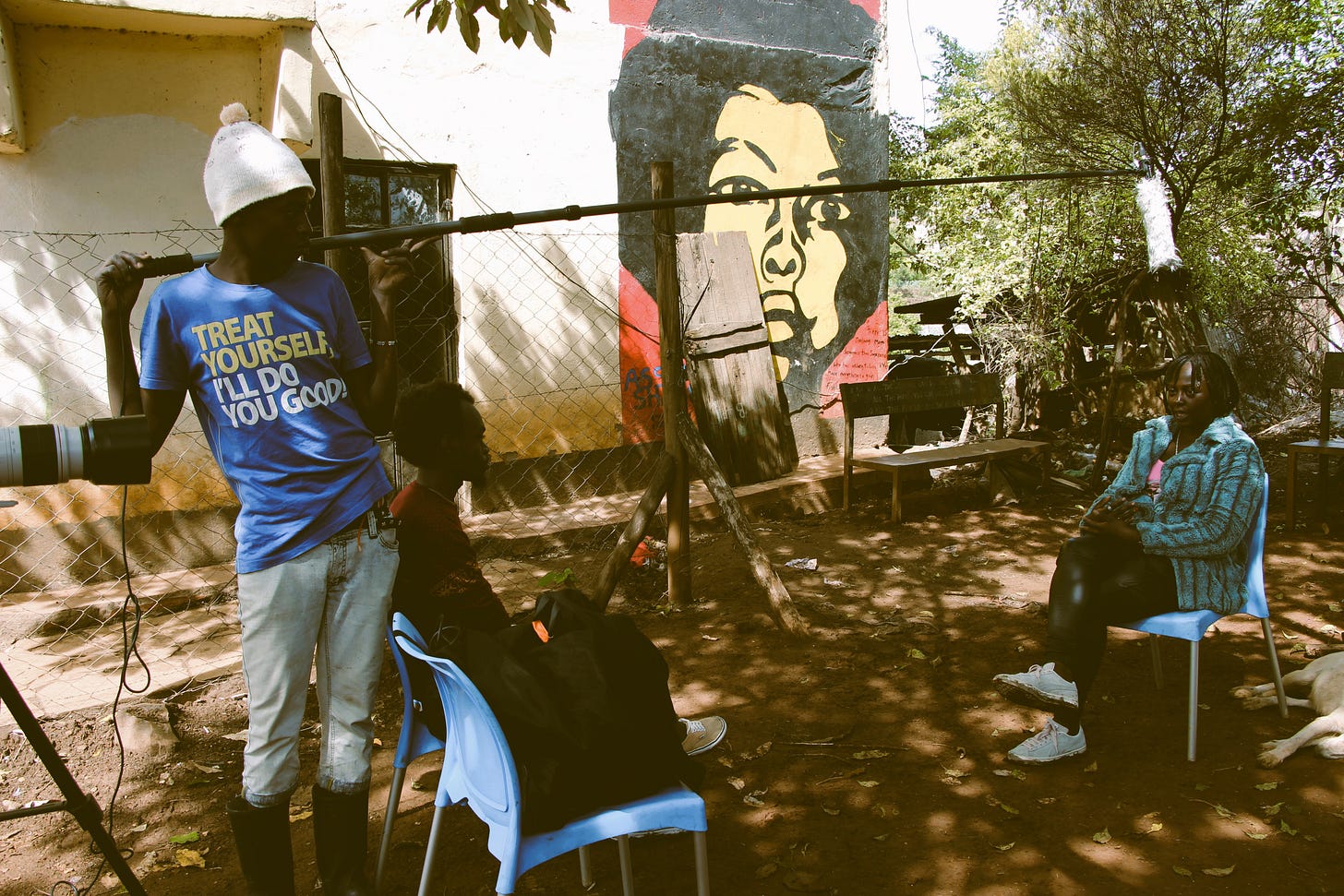
The lack of basic amenities like clean water, sanitation, and proper housing was stark, yet the spirit of the people remained unbroken. Conversations with residents revealed stories of struggle but also of hope and determination. Children playing in the shadows of makeshift homes, women balancing precarious livelihoods, and men striving for better opportunities painted a vivid picture of a community fighting against the odds.
The documentary aimed to amplify their voices, shedding light on systemic inequalities often overlooked. It was a reminder of the power of storytelling to foster empathy and drive change. Mathare taught me that behind every statistic is a human story, and it is our duty to ensure those stories are heard.
But in the midst of all the chaos in Mathare, there are unexpected success stories. The youth have surrendered crime and have taken up ecological justice projects to fend not only for themselves but for the whole Mathare Community.
Our Collaborators.
This investigative piece was made possible by our long-standing partnerships with The Elephant, Africa Uncensored, and Institute of War and Peace Reporting (IWPR).







